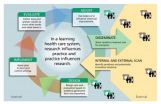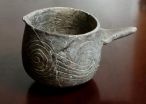(Press-News.org) New Rochelle, NY, August 7, 2012—The body's natural reaction to reject replacement proteins represents a major obstacle to the successful use of gene therapy to cure a range of life-threatening diseases. A novel method that uses the body's own immune cells to induce tolerance to a specific protein was shown to suppress the rejection response, as described in an article in Human Gene Therapy, a peer-reviewed journal from Mary Ann Liebert, Inc.
(http://www.liebertpub.com). The article is available free online at the Human Gene Therapy (http://www.liebertpub.com/hum) website.
"A major limitation of protein and gene therapeutics is the associated immune responses which can cause toxicity and diminish efficacy," says James M. Wilson, MD, PhD, Editor-in-Chief, and Director of the Gene Therapy Program, Department of Pathology and Laboratory Medicine, University of Pennsylvania Perelman School of Medicine, Philadelphia. "This clever use of immune modulators may prevent these untoward immune responses from happening."
Exposing a type of immune cell called dendritic cells to a specific therapeutic protein in the presence of immune-stimulating chemicals called cytokines leads to the creation of tolerogenic dendritic cells. These cells, when introduced into mice that are then given gene therapy designed to deliver the therapeutic protein of interest, allow the mice to tolerate, and not reject, the therapeutic protein.
Current approaches to induce partial or full tolerance to proteins replaced via gene therapy are expensive and are unsuccessful in as many as 40% of cases. The method described in this article by Gautam Sule and colleagues from Baylor College of Medicine and Howard Hughes Medical Institute, Houston, TX, offers advantages to support the long-term success of gene therapies. The authors report their findings in "Cytokine-Conditioned Dendritic Cells Induce Humoral Tolerance to Protein Therapy in Mice."
INFORMATION:
(http://online.liebertpub.com/doi/full/10.1089/hum.2011.225)
About the Journal
Human Gene Therapy (http://www.liebertpub.com/hum), the Official Journal of the European Society of Gene and Cell Therapy, British Society for Gene and Cell Therapy, French Society of Cell and Gene Therapy, German Society of Gene Therapy, and five other gene therapy societies is an authoritative peer-reviewed journal published monthly in print and online that presents reports on the transfer and expression of genes in mammals, including humans. Related topics include improvements in vector development, delivery systems, and animal models, particularly in the areas of cancer, heart disease, viral disease, genetic disease, and neurological disease, as well as ethical, legal, and regulatory issues related to the gene transfer in humans. Tables of contents and a free sample issue may be viewed online at the Human Gene Therapy (http://www.liebertpub.com/hum) website.
About the Publisher
Mary Ann Liebert, Inc., publishers (http://www.liebertpub.com) is a privately held, fully integrated media company known for establishing authoritative peer-reviewed journals in many promising areas of science and biomedical research, including Tissue Engineering, Stem Cells and Development, and Cellular Reprogramming. Its biotechnology trade magazine, Genetic Engineering & Biotechnology News (GEN), was the first in its field and is today the industry's most widely read publication worldwide. A complete list of the firm's 70 journals, books, and newsmagazines is available online at the Mary Ann Liebert Inc. (http://www.liebertpub.com) website.
Mary Ann Liebert, Inc.
140 Huguenot St., New Rochelle, NY 10801-5215
http://www.liebertpub.com
Phone: (914) 740-2100
(800) M-LIEBERT
Fax: (914) 740-2101
Method to prevent rejection of disease-fighting proteins described in Human Gene Therapy journal
2012-08-07
ELSE PRESS RELEASES FROM THIS DATE:
Composite nanofibers developed by Penn scientists next chapter in orthopaedic biomaterials
2012-08-07
PHILADELPHIA – Bioengineered replacements for tendons, ligaments, the meniscus of the knee, and other tissues require re-creation of the exquisite architecture of these tissues in three dimensions. These fibrous, collagen-based tissues located throughout the body have an ordered structure that gives them their robust ability to bear extreme mechanical loading.
Many labs have been designing treatments for ACL and meniscus tears of the knee, rotator cuff injuries, and Achilles tendon ruptures for patients ranging from the weekend warrior to the elite Olympian. One popular ...
California's hydroelectricity production is vulnerable to climate change
2012-08-07
RIVERSIDE, Calif. — California's hydropower is vulnerable to climate change, a University of California, Riverside scientist has advised policymakers in "Our Changing Climate," a report released July 31 by the California Natural Resources Agency and the California Energy Commission (CEC).
"Climate change is expected to affect the quantity and timing of water flow in the state," explained Kaveh Madani, a former postdoctoral research scholar in UC Riverside's Water Science and Policy Center (WSPC), who led a research project on climate change effects on hydropower production, ...
Annals of Internal Medicine tip sheet for Aug. 7, 2012 issue
2012-08-07
1. Tuning into Contextual Clues May Help Doctors Improve Antibiotic Prescribing Habits
Appropriate use of antibiotics can improve patient outcomes and reduce risk for antibiotic resistance. Febrile respiratory illnesses, or FRI, often present with vague, cold-like symptoms, making it difficult to discern whether the illness is viral or bacterial. Since there are few bedside clues that reliably distinguish viral from bacterial, physicians rely on contextual factors to aid treatment decisions. Contextual factors include epidemiology (for example, flu pandemic period) and ...
Fainting: All in the family?
2012-08-07
MINNEAPOLIS – Fainting has a strong genetic predisposition, according to new research published in the August 7, 2012, print issue of Neurology®, the medical journal of the American Academy of Neurology. Fainting, also called vasovagal syncope, is a brief loss of consciousness when your body reacts to certain triggers, such as emotional distress or the sight of blood.
"The question of whether fainting is caused by genetic factors, environmental factors or a mixture of both has been the subject of debate," said study author Samuel F. Berkovic, MD, FRS, with the University ...
A 'learning health system' moves from idea to action
2012-08-07
In the United States, clinicians are struggling to provide better and more affordable health care to more people—while keeping up with new scientific developments. The idea of a "learning health system" is one proposed solution for rapidly applying the best available scientific evidence in real-time clinical practice. In the August 7 Annals of Internal Medicine, a Group Health Cooperative team describes the experience of turning this intriguing concept into action.
"In a learning health system, evidence and practice come together in a virtuous cycle, influencing each ...
Researchers peek at the early evolution of sex chromosomes
2012-08-07
CHAMPAIGN, Ill. — Two new studies offer insight into sex chromosome evolution by focusing on papaya, a multimillion dollar crop plant with a sexual problem (as far as growers are concerned) and a complicated past. The findings are described in two papers in the Proceedings of the National Academy of Sciences.
The research reveals that the papaya sex chromosomes have undergone dramatic changes in their short evolutionary histories (they are about 7 million years old; by comparison, human sex chromosomes began their evolution more than 167 million years ago). One of the ...
Researchers find evidence of ritual use of 'black drink' at Cahokia
2012-08-07
CHAMPAIGN, Ill. — People living 700 to 900 years ago in Cahokia, a massive settlement near the confluence of the Missouri and Mississippi Rivers, ritually used a caffeinated brew made from the leaves of a holly tree that grew hundreds of miles away, researchers report.
The discovery – made by analyzing plant residues in pottery beakers from Cahokia and its surroundings – is the earliest known use of this "black drink" in North America. It pushes back the date by at least 500 years, and adds to the evidence that a broad cultural and trade network thrived in the Midwest ...
Generic language helps fuel stereotypes, NYU, Princeton researchers find
2012-08-07
Hearing generic language to describe a category of people, such as "boys have short hair," can lead children to endorse a range of other stereotypes about the category, a study by researchers at New York University and Princeton University has found. Their research, which appears in the Proceedings of the National Academy of Sciences (PNAS), also points to more effective methods to reduce stereotyping and prejudice.
The study focused on "social essentialism," or the belief that certain social categories, such as race or gender, mark fundamentally distinct kinds of people. ...
Gladstone scientists discover that epilepsy drug reverses memory loss in animal model of AD
2012-08-07
SAN FRANCISCO, CA—August 6, 2012— Scientists at the Gladstone Institutes have discovered that an FDA-approved anti-epileptic drug reverses memory loss and alleviates other Alzheimer's-related impairments in an animal model of the disease.
Scientists in the laboratory of Lennart Mucke, MD, who directs neurological research at Gladstone, conducted the research on mice genetically modified to simulate key aspects of Alzheimer's disease. In the study, they show how levetiracetam—a drug commonly prescribed for patients who suffer from epilepsy—suppresses abnormal brain activity ...
New genetic study defines the genetic map of the Jewish Diasporas
2012-08-07
VIDEO:
Harry Ostrer, M.D., discusses how his research into a new genetic analysis focusing on Jews from North Africa has provided an overall genetic map of the Jewish Diasporas. Dr....
Click here for more information.
August 6, 2012 — (Bronx, NY) — A new genetic analysis focusing on Jews from North Africa has provided an overall genetic map of the Jewish Diasporas. The findings support the historical record of Middle Eastern Jews settling in North Africa during Classical Antiquity, ...





